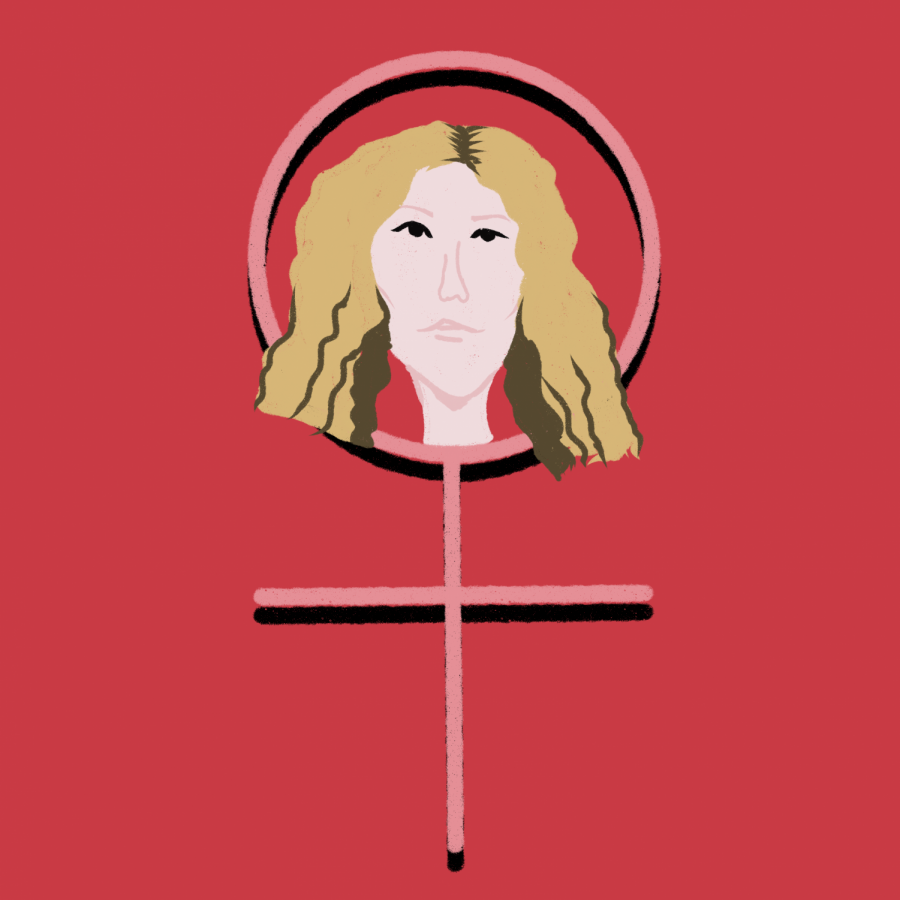Opinion | Am I a bad feminist for enjoying Sex and the City?
May 19, 2021
This year, I have filled many of my evenings with a guilty pleasure — “Sex and the City.” Something about strolling around New York City with your friend, coffee in hand and planning for that night’s party, seemed very attractive to me — especially considering my social life was confined to Zoom. But as I got into my nightly routine, I quickly noticed the show’s problematic elements. I began to wonder, am I a bad feminist for enjoying “Sex and the City?”
“Sex and the City” follows the adventures of four female friends living in Manhattan and is based on the book by Candace Bushnell of the same name. Carrie Bradshaw, the main protagonist, writes about sex and love for a newspaper. She is joined by Samantha Jones, a public relations director, Miranda Hobbes, a lawyer, and Charlotte York, an art gallerist — and yes, I did recite those all from memory. They are all career women who can rock a pantsuit during the day and a strappy dress at night. And they do, in fact, have quite a lot of sex.
At first glance, you’ll likely notice two things — an all-white cast and lots of shopping. All four leading women, including most of their sexual partners, are white. Consumerism is an overarching theme of the show, as we watch Carrie shell out on $300 shoes, manicures and cosmopolitans. If the four friends aren’t with men, then they’re getting ready to meet men or they’re discussing men. Some episodes barely pass the Bechdel test, which requires a conversation between two women talking about something other than a man.
But the main argument for these plotlines, I would assume, is that the women are in control of their sexual experiences. The show frequently addresses double standards and stigmas. For example, Carrie decides she wants to have sex “like a man,” meaning she opts for one-night stands. But if these women are so sexually liberated, why do they talk about men all the time? Perhaps it hints at broader social and political imbalances that cause the female psyche to worry about male validation more than their own.
Carrie Bradshaw, it would seem, is not what our feminist trailblazers intended. Her shopping habits and questionable relationships with men appear as though she is playing right into the hands of the patriarchy. It begs the question — is this an acceptable use of feminism? And, if feminism is all about giving women choice, is it possible to choose wrong?
During the same time I watched “Sex and the City,” I was also taking Intro to Feminist Theory. It was interesting to compare the series to readings like Betty Friedan’s “The Problem That Has No Name,” which talked about women’s discontent in the 1950s due to the unpaid and emotional labor expected of them under capitalism. I would read about a generation of women who were isolated in their homes and beholden to their husbands during the day and watch career women enjoy city life at night.
The protagonists in “Sex and the City” experience a level of sexual freedom, social culture and self-sufficiency of which previous generations could only dream. When Carrie’s birth control pills and condoms fell out of her purse, I thought of the generation of feminists who had to advocate for universal birth control and reproductive rights.
But the show leaves a lot of people out. Many are turned off by the absence of any non-white cast members or size inclusivity, its harmful depiction of queer people and the characters’ confusing lack of economic strife despite living in the country’s most expensive city. When we relate it to today’s intersectional feminism, it undoubtedly falls flat.
In Audre Lorde’s “The Master’s Tools Will Never Dismantle the Master’s House,” she discusses the concept of intersectionality and the danger of white American feminism. Lorde argues that we must acknowledge the differences between us in order to analyze the subsequent differences in oppression.
“In a world of possibility for us all, our personal visions help lay the groundwork for political action. The failure of academic feminists to recognize difference as a crucial strength is a failure to reach beyond the first patriarchal lesson,” she writes.
So, how should we judge entertainment as feminists? Roxane Gay says we shouldn’t be too hard on ourselves. In her book, “Bad Feminist,” she explores being a feminist while enjoying things that may seem to diverge from feminist ideology — such as rap music that often contains degrading lyrics about women. She argues that she would rather be a “bad feminist” than no feminist at all.
“I resisted feminism in my late teens and my twenties because I worried that feminism would not allow me to be the mess of a woman I know myself to be,” she writes.
“Sex and the City” was a trailblazer for its sex-positive commentary and portrayal of female friendships. And it’s okay if the media that empowered a previous generation of women can no longer serve this one in this same way. For “Sex and the City,” I say take what resonates and leave the rest.
India writes primarily about politics for The Pitt News. Write to her at [email protected] or follow her on Twitter @indialarson_.









